
Eye Health of the Children and Crossed - Eye Treatment
When both eyes are misaligned, it is called Crossed Eye or Strabismus. This might be unnoticeable, rarely or often. Unnoticeable crossed eyes can only be seen during the examinations and the perception of depth which is the highest level of binocular vision is normal. Crossed eye syndrome usually starts rarely and evolves to a permanent situation. In turned crossed eye syndromes becomes permanent in months however it takes a long time for the out turned crossed eyes to become permanent.
A child's vision plays an important role in his development. If your child has an uncorrected vision problem, it may hinder his ability to reach his potential. Taking your child for routine eye checks is very important for all these factors. Eye health of a child is a very important part of child’s general health.
Your child's visual development will vary at every age. These developments may not be the same in every child. There are different ways to increase your child's eye health. Consulting an expert is always the best way to get detailed information and get started.
In this article we will mention the importance of eye health in children and causes of crossed-eye(Strabismus) in children. We will also talk about the symptoms of crossed-eye in children and crossed-eye treatment in children. You can read about pediatric eye exams in the final part of the article.
Importance of Eye Health in ChildrenIn babies, the ability to see starts in the 3rd and 4th months. Within a few years, the baby begins to see farther and perceive distances. This is followed by eye-body coordination.
Babies and children perceive the world largely through seeing. Therefore, a potential eye problem risks hindering the child's development.
Children rarely complain of vision problems because they do not have an adequate idea of the world. This is because everyone thinks they see the world as they do. As a result, vision problems in children often come on suddenly. In this regard, it is important for parents to be careful and watch their children.
Children with visual impairments may experience problems at school because they have difficulty reading. Vision scans and visual acuity take on a big mission at this stage. Eye scanning of children with potential eye problems and treatment of their problems are of critical importance for the future of children.
Causes of Crossed-Eye (Strabismus) in ChildrenStrabismus (crossed-eye) is the name given to turning one eye in a different direction from the other eye and one of the most seen eye conditions in children. Glasses, eye patches, eye exercises, medications and surgery are among the alternatives offered in the treatment of strabismus.
The six muscles that control eye movements work together and turn both eyes in the same direction. In the case of strabismus, problems arise in the control of eye movements. Patients with strabismus cannot maintain normal ocular alignment (eye position).
Strabismus is often inherited, and about 30 percent of children with strabismus have a family member with a similar problem.
Some factors that can cause strabismus include:
- Uncorrected refractive errors
- Poor vision in one eye
- Down syndrome
- Hydrocephalus (a congenital disease that causes fluid to accumulate in the brain)
- Glioma
- Stroke (leading cause of strabismus in adults)
- Head injuries
- Neurologicalproblems
- Cerebral palsy
A 6-month-old baby should be able to focus on objects near or far. Strabismus is commonly seen in infants and young children. Strabismus is diagnosed until the child reaches 3 years of age. However, it is normal to have strabismus after this age. Vision screening take a key role here.
Symptoms of crossed-eye in chlidren can can and go. That’s whey parents should be follow their children continuously and consult an eye doctor in any doubt.
Some of the symptoms of crossed-eye in childen can be lined up as below:
- Eyes not looking in the same direction at the same time
- Squinting or closing one eye in bright sunlight.
- Blurred vision, tired eyes, sensitivity to light, double vision
- Tilting or turning the head to look at an object.
If your child's eyes aren't always aligned after four months of age, visit an eye doctor for an eye doctor.
Crossed-Eye (Strabismus) Treatment in ChildrenVision therapy takes an important role in treatment in children. There are also different treatments such as:
- Glasses: Using eyeglasses for children is suitable for mild strabismus
- Eye patch: Patching therapy is another option. If your child has amblyopia, wearing a temporary eye patch over the stronger eye can offer support to align the eyes. Your child should wear the patch sometimes or all the time, depending on his or her condition.
- Surgery on the eye muscles: In some cases surgical correction might be needed. Surgery is the most effective way to improve vision and align the eyes better. The number of operations may be more than one. However, your child should continue to use glasses. Surgeries for eye muscles done under general anesthesia with dissolving stitches. Sometimes adults are offered adjustable strabismus surgery.
- Medicines: Diffirent medicines can be given by your child’s eye doctor as each cross eye case is different.
- Eye exercises: Eye exercises might be helpful for cross eye in children as well as adults.
In addition to these, eye alignment and binocular vision are among the conditions that there are different treatment approaches.
Pediatric Eye ExamsEye health must be considered seriously, specially eye health of the children. Eye doctors recommend parents to visit them for their children’s first eye exam at six months. This is important in terms of understanding if their eyes are developing in normal way.
pediatric ophthalmology is the clinic where you should visit with your child periodically for eye exams for children. Your child’s and other children's vision and visual development are monitored here. In the field of optometry studies still carried out about pediatric eye exams for even better treatments.
OUR DOCTORS
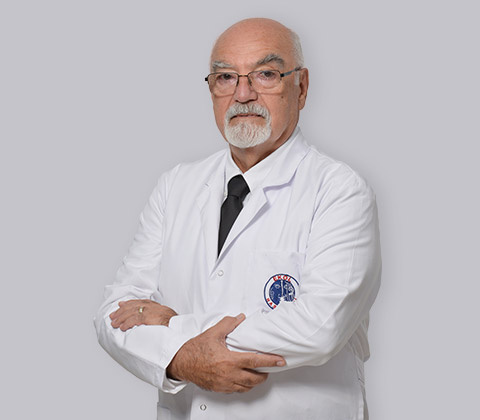 He was born in Ankara in 1945. He attended TED Ankara College, İzmir Bornova Anatolian High School and Ege University, Faculty of Medicine between 1963 and 1969, respectively. Upon his graduation, he started his specialization at Ege University, Faculty of Medicine, Eye Diseases Department and assumed the title of Eye Diseases Specialist in 1971. Between 1974 and 1975, he performed his military service as an ophthalmologist in Hatay Military Hospital in İzmir. After that, he was educated on Retinal Diseases and Lasers in Ophthalmology Clinic of the Faculty of Medicine at University of Gant, Belgium for 1 year. In 1977, he assumed the title of Associate Professor of Ophthalmology, and he founded and operated Retina and Contact Lenses units in Ege University, Faculty of Medicine, Department of Eye Diseases. In 1982 he became a Professor of Eye Diseases. Between 1992 and 2000, he served as the Head of Department of Eye Diseases, Faculty of Medicine, Ege University. In the meantime, he published 3 books and more than 150 domestic and foreign scientific papers, and about 170 papers in national and international congresses. He is married to Dr. Nigar Erbakan and has two sons.
He was born in Ankara in 1945. He attended TED Ankara College, İzmir Bornova Anatolian High School and Ege University, Faculty of Medicine between 1963 and 1969, respectively. Upon his graduation, he started his specialization at Ege University, Faculty of Medicine, Eye Diseases Department and assumed the title of Eye Diseases Specialist in 1971. Between 1974 and 1975, he performed his military service as an ophthalmologist in Hatay Military Hospital in İzmir. After that, he was educated on Retinal Diseases and Lasers in Ophthalmology Clinic of the Faculty of Medicine at University of Gant, Belgium for 1 year. In 1977, he assumed the title of Associate Professor of Ophthalmology, and he founded and operated Retina and Contact Lenses units in Ege University, Faculty of Medicine, Department of Eye Diseases. In 1982 he became a Professor of Eye Diseases. Between 1992 and 2000, he served as the Head of Department of Eye Diseases, Faculty of Medicine, Ege University. In the meantime, he published 3 books and more than 150 domestic and foreign scientific papers, and about 170 papers in national and international congresses. He is married to Dr. Nigar Erbakan and has two sons. 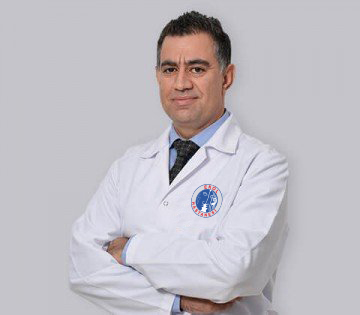 Dr Esat Çınar was born in Diyarbakır in 1976. He started İstanbul University, Faculty of Medicine in 1997 and graduated in 2003. He completed his speciality degree between 2003 and 2009 at İzmir Ege University, Faculty of Medicine, Ophthalmology Department. He was in charge of Glaucoma and Cornea Departments as a Deputy Associate Professor in İzmir University Hospital Faculty of Medicine, Department of Ophthalmology. He studied “Keratoplasty” in Ege University, Faculty of Medicine for 6 months (also known as “eye transplant”). He also was in charge of the controls of the premature babies’ in İzmir University Ophthalmology Department. He attended the course for vivisection both in clinical and laboratory fields for one month. His special interests are; Cataract surgery (multifocal, trifocal and thoric intraocular lenses), Cataract surgery with laser (Femtosecond Cataract), Keratoplasty, glaucoma surgery (non-penetrant surgeries such as viscocanalostomy, deep sclerotomy), Excimer Laser Surgeries (Lasik, Lasek, PRK), medical retinal diseases. He has many published articles in international indexes. He has many verbal and written presentations in national and international scientific meetings. He is an active member of the Turkish Association for Ophthalmology. He speaks fluent English and has one child.
Dr Esat Çınar was born in Diyarbakır in 1976. He started İstanbul University, Faculty of Medicine in 1997 and graduated in 2003. He completed his speciality degree between 2003 and 2009 at İzmir Ege University, Faculty of Medicine, Ophthalmology Department. He was in charge of Glaucoma and Cornea Departments as a Deputy Associate Professor in İzmir University Hospital Faculty of Medicine, Department of Ophthalmology. He studied “Keratoplasty” in Ege University, Faculty of Medicine for 6 months (also known as “eye transplant”). He also was in charge of the controls of the premature babies’ in İzmir University Ophthalmology Department. He attended the course for vivisection both in clinical and laboratory fields for one month. His special interests are; Cataract surgery (multifocal, trifocal and thoric intraocular lenses), Cataract surgery with laser (Femtosecond Cataract), Keratoplasty, glaucoma surgery (non-penetrant surgeries such as viscocanalostomy, deep sclerotomy), Excimer Laser Surgeries (Lasik, Lasek, PRK), medical retinal diseases. He has many published articles in international indexes. He has many verbal and written presentations in national and international scientific meetings. He is an active member of the Turkish Association for Ophthalmology. He speaks fluent English and has one child. 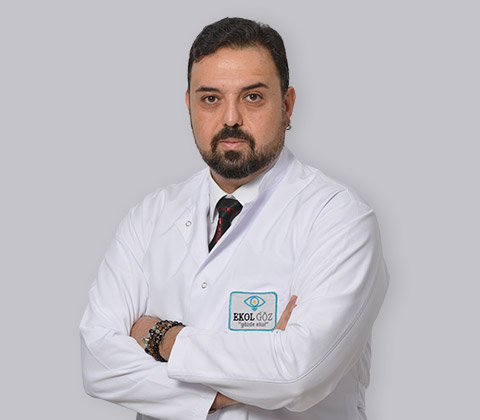 He was born in Izmir, in 1971. He attended summer school at Mids School of English, Eastbourn, England for learning a foreign language while he was in Bornova Anatolian High School and graduated with a high degree. He started his medical education at Ege University and continued with his specialization at JL Uni-Giessen, Germany, where he had the chance of working peer to peer with names such as Prof. Dr. Karl W. Jacobi, Prof Dr. Herbert Kaufmann, Prof. Dr. S. Pavlovic. Then, he found the opportunity to further his education in the field of refractive surgery by working with the most important names, such as Prof. Dr. T. Kohnen, JWG Uni-Frankfurt, Prof. Dr. I. Pallikaris, University of Crete, Prof Dr. Mahmut Kaşkaloğlu, Ege University Faculty of Medicine and Kaşkaloğlu Eye Hospital. Besides, he did scientific studies about medical glaucoma treatment, which is his other field of interest, with Ass. Prof. Dr. Karl Georg Schmidt, CGC Uni-Dresden. He is a member of DOG, ESCRS, ISRS of the AAO and TOD. He is married and has one child.
He was born in Izmir, in 1971. He attended summer school at Mids School of English, Eastbourn, England for learning a foreign language while he was in Bornova Anatolian High School and graduated with a high degree. He started his medical education at Ege University and continued with his specialization at JL Uni-Giessen, Germany, where he had the chance of working peer to peer with names such as Prof. Dr. Karl W. Jacobi, Prof Dr. Herbert Kaufmann, Prof. Dr. S. Pavlovic. Then, he found the opportunity to further his education in the field of refractive surgery by working with the most important names, such as Prof. Dr. T. Kohnen, JWG Uni-Frankfurt, Prof. Dr. I. Pallikaris, University of Crete, Prof Dr. Mahmut Kaşkaloğlu, Ege University Faculty of Medicine and Kaşkaloğlu Eye Hospital. Besides, he did scientific studies about medical glaucoma treatment, which is his other field of interest, with Ass. Prof. Dr. Karl Georg Schmidt, CGC Uni-Dresden. He is a member of DOG, ESCRS, ISRS of the AAO and TOD. He is married and has one child. 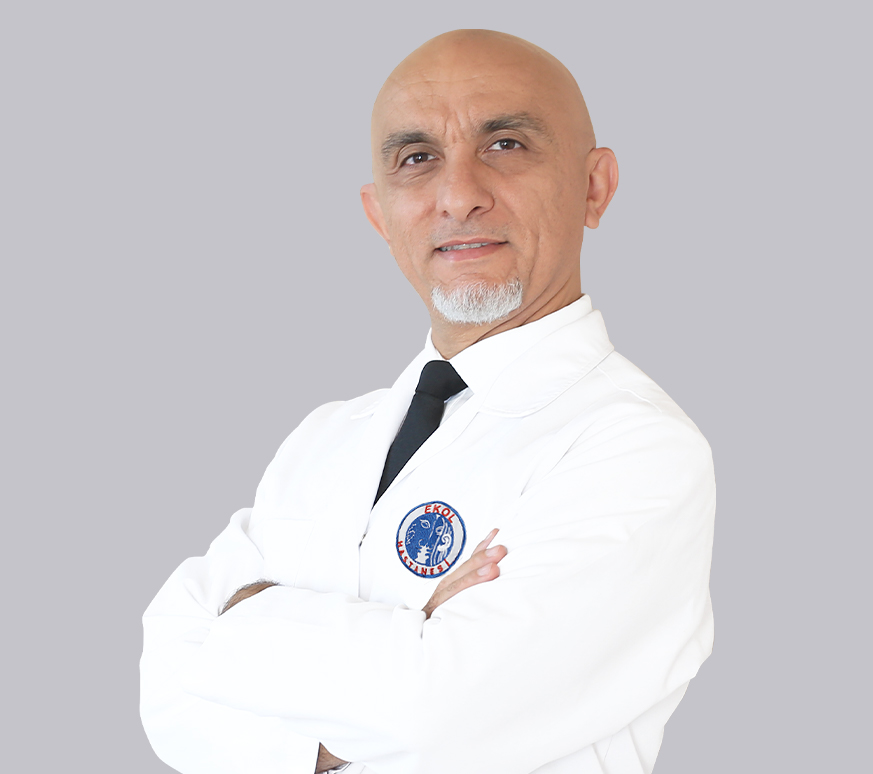 He graduated from Hacettepe University Faculty of Medicine in 1998. He completed his speciality in İzmir Dokuz Eylül University Faculty of Medicine Department of Eye Diseases between 1998 and 2002. He studied Retinal Surgeries in Munich Ludwig – Maximillian University Faculty of Medicine, Department of Eye Diseases. Special Interests: Cataract Surgeries (Multifocal, Trifocal, Toric Intraocular Lenses), Laser Cataract Surgeries (Femtosecond, Laser Cataract), Excimer Laser Surgeries (Lasik, Lasek, PRK) and Medical & Surgical Retinal Surgeries, Eyelid Surgeries. He has many articles published which were also scientifically indexed. He has oral and poster presentations in national & international science meetings. He is an active member of Turkish Society of Ophthalmology. He speaks English & German well, and married with 2 children.
He graduated from Hacettepe University Faculty of Medicine in 1998. He completed his speciality in İzmir Dokuz Eylül University Faculty of Medicine Department of Eye Diseases between 1998 and 2002. He studied Retinal Surgeries in Munich Ludwig – Maximillian University Faculty of Medicine, Department of Eye Diseases. Special Interests: Cataract Surgeries (Multifocal, Trifocal, Toric Intraocular Lenses), Laser Cataract Surgeries (Femtosecond, Laser Cataract), Excimer Laser Surgeries (Lasik, Lasek, PRK) and Medical & Surgical Retinal Surgeries, Eyelid Surgeries. He has many articles published which were also scientifically indexed. He has oral and poster presentations in national & international science meetings. He is an active member of Turkish Society of Ophthalmology. He speaks English & German well, and married with 2 children. 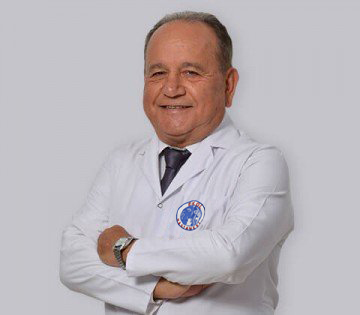 He graduated from Istanbul University, Faculty of Medicine and completed his specialty training in S.S.K Istanbul Hospital in 1984. He worked at Çanakkale State Hospital between 1984 and 2007. After 2007, he worked in private sector health units. He is an active member of The Turkish Ophthalmology Association and American Cataract and Refractive Association. Anterior segment (cataract) medical retina, glaucoma and contact lens are his areas of interest. He has a good command of English.
He graduated from Istanbul University, Faculty of Medicine and completed his specialty training in S.S.K Istanbul Hospital in 1984. He worked at Çanakkale State Hospital between 1984 and 2007. After 2007, he worked in private sector health units. He is an active member of The Turkish Ophthalmology Association and American Cataract and Refractive Association. Anterior segment (cataract) medical retina, glaucoma and contact lens are his areas of interest. He has a good command of English. 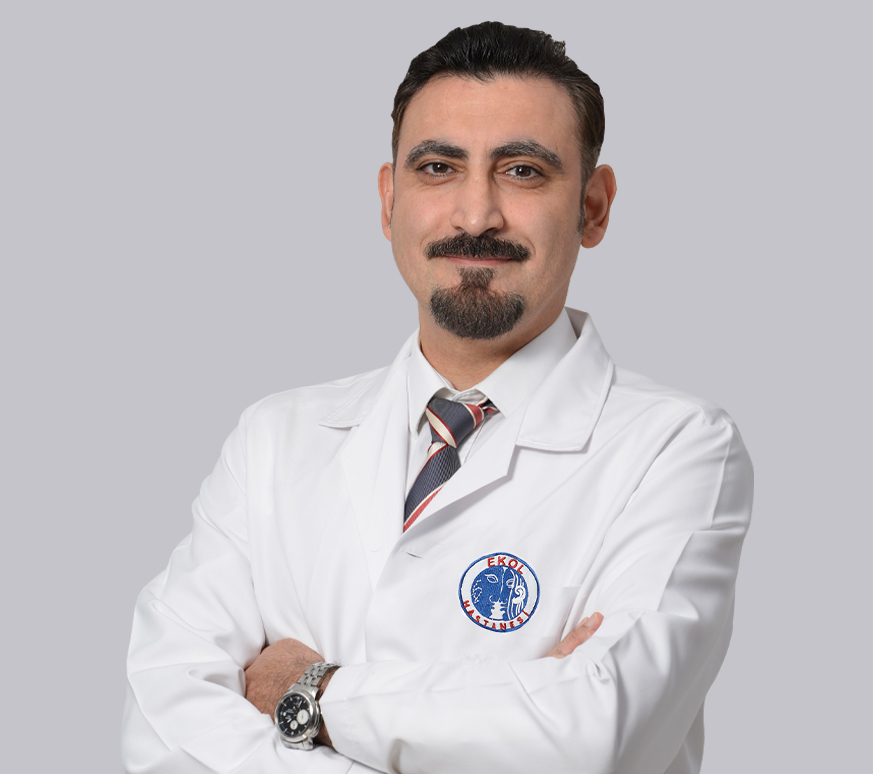 He was born in 1977. He graduated from Ege University. Fields of Interest: Cataract Surgery (Monofocal, Multifocal, Trifocal, EDOF, Toric Lenses) Excimer Laser (Femtosecond LASIK, PRK, No-Touch) ICL Keratoconus - Crosslink, Hard Contact Lens Application, Intrastromal Corneal Ring Strabismus Surgery Oculoplastic Surgery (Eyelid Aesthetic Surgery, Ectropium, Entropium, Ptosis, Probing, Tear Duct Obstruction) Pterygium Surgery (with Autograft) Glaucoma Medical and Laser Therapy Retinal Diseases (Intraocular Drug Injections, Diabetic Retinopathy, Yellow Spot Disease, Retinal Tears) Soft Contact Lens Inspection and Application He is a member of Turkish Association of Ophthalmology. He is married.
He was born in 1977. He graduated from Ege University. Fields of Interest: Cataract Surgery (Monofocal, Multifocal, Trifocal, EDOF, Toric Lenses) Excimer Laser (Femtosecond LASIK, PRK, No-Touch) ICL Keratoconus - Crosslink, Hard Contact Lens Application, Intrastromal Corneal Ring Strabismus Surgery Oculoplastic Surgery (Eyelid Aesthetic Surgery, Ectropium, Entropium, Ptosis, Probing, Tear Duct Obstruction) Pterygium Surgery (with Autograft) Glaucoma Medical and Laser Therapy Retinal Diseases (Intraocular Drug Injections, Diabetic Retinopathy, Yellow Spot Disease, Retinal Tears) Soft Contact Lens Inspection and Application He is a member of Turkish Association of Ophthalmology. He is married. 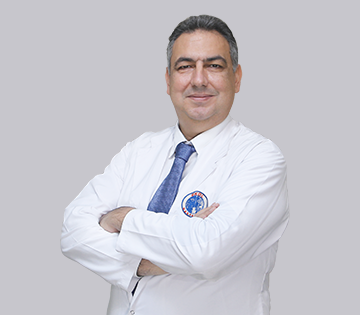 Dr. Kaan Okan Erdem was born in İzmir, in 1968. He finished middle school in Private İzmir Türk College and high school in Atatürk High School. He studied medicine in Selçuk University Faculty of Medicine. He is an active member of European Association of Cataract and Refractive Surgery, European Association of Ophthalmic Plastic and Reconstructive Surgery. He is interested in cataract, refractive surgery, oculoplastic and reconstructive surgery (upper and lower eyelids, tumour removals around the eye, entropium, ectropium ptosis, blepharoplasty), eye ultrasound, medical retinal and glaucoma. He speaks fluent English and married with 2 children.
Dr. Kaan Okan Erdem was born in İzmir, in 1968. He finished middle school in Private İzmir Türk College and high school in Atatürk High School. He studied medicine in Selçuk University Faculty of Medicine. He is an active member of European Association of Cataract and Refractive Surgery, European Association of Ophthalmic Plastic and Reconstructive Surgery. He is interested in cataract, refractive surgery, oculoplastic and reconstructive surgery (upper and lower eyelids, tumour removals around the eye, entropium, ectropium ptosis, blepharoplasty), eye ultrasound, medical retinal and glaucoma. He speaks fluent English and married with 2 children. 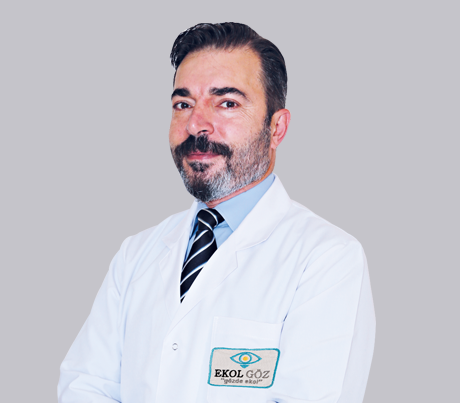 He graduated from Dokuz September University Faculty of Medicine in 1996. He completed his specialized education in the Department of Ophthalmology of the Faculty of Medicine of the Aegean University between 1996-2001 and earned the title of ophthalmologist Dec. He has published numerous scientific articles that fall into international scientific indexes. There are numerous oral and poster presentations to national and international scientific meetings. He is an active member of the Turkish Ophthalmology Association (Tod). He speaks good English, Opr. Dr. Uğur Karagöz is the father of 2 children. Special interests: Cataract surgery (multifocal, trifocal, Toric intraocular lenses) Cataract surgery with laser (Femtosecond Laser Cataract) Excimer laser surgeries (Lasik, Lasek, PRK) Medical and surgical Retina Eyelid Surgeries
He graduated from Dokuz September University Faculty of Medicine in 1996. He completed his specialized education in the Department of Ophthalmology of the Faculty of Medicine of the Aegean University between 1996-2001 and earned the title of ophthalmologist Dec. He has published numerous scientific articles that fall into international scientific indexes. There are numerous oral and poster presentations to national and international scientific meetings. He is an active member of the Turkish Ophthalmology Association (Tod). He speaks good English, Opr. Dr. Uğur Karagöz is the father of 2 children. Special interests: Cataract surgery (multifocal, trifocal, Toric intraocular lenses) Cataract surgery with laser (Femtosecond Laser Cataract) Excimer laser surgeries (Lasik, Lasek, PRK) Medical and surgical Retina Eyelid Surgeries 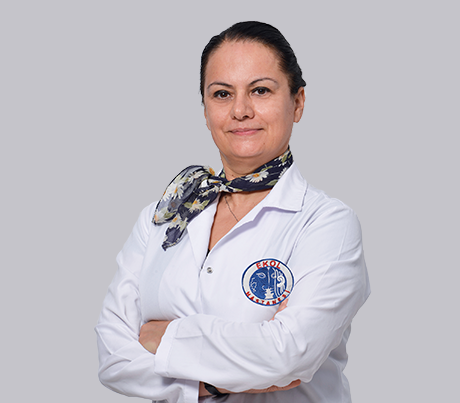 Born in Cyprus Serdarlı, he graduated from Nicosia Turkish High School. He graduated from Dokuz Eylul University Faculty of Medicine. He completed his specialization in Atatürk Health Site Yeşilyurt State Hospital with his thesis on the comparison of the rear camera lens application and the front camera lenses, which was started to be applied for the first time in the clinic under the management of Zühal Çakırca, the clinical chief. She worked as a contact lens center in İzmir for three years and then as chief physician at Karşıyaka Kızılay Fatma Kutluay Dispensary. He continued to work in Karşıyaka by establishing the Private Yalı Polyclinic in 2005 and the Private Yalı Eye Health Branch Center in 2007, his special interests are refraction and contact lenses. He is a member of the Turkish Ophthalmology Association.
Born in Cyprus Serdarlı, he graduated from Nicosia Turkish High School. He graduated from Dokuz Eylul University Faculty of Medicine. He completed his specialization in Atatürk Health Site Yeşilyurt State Hospital with his thesis on the comparison of the rear camera lens application and the front camera lenses, which was started to be applied for the first time in the clinic under the management of Zühal Çakırca, the clinical chief. She worked as a contact lens center in İzmir for three years and then as chief physician at Karşıyaka Kızılay Fatma Kutluay Dispensary. He continued to work in Karşıyaka by establishing the Private Yalı Polyclinic in 2005 and the Private Yalı Eye Health Branch Center in 2007, his special interests are refraction and contact lenses. He is a member of the Turkish Ophthalmology Association. 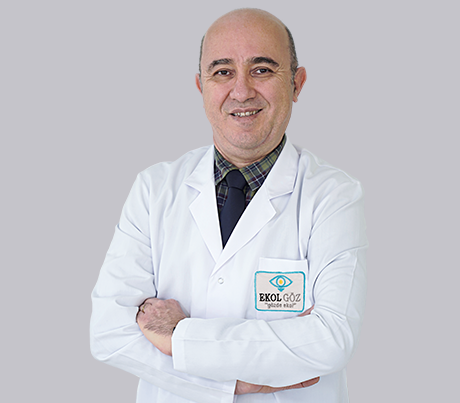 He graduated from Ege University Faculty of Medicine in 1989. Specialization he completed his education in Izmir Education and Research between 1991-1994. He completed his Ophthalmology Department at the Hospital. International A large number of scientific articles included in scientific indexes have been published. Numerous oral and poster presentations to national and international scientific meetings has a presentation. He is an active member of the Turkish Ophthalmology Association (TOD). Fluent in English, Opr. Dr. Gazi Duman is married and has two children. Special interests: Cataract Surgery (multifocal, trifocal, toric intraocular lenses) Cataract Surgery with Laser (Femtosecond Laser Cataract) Excimer Laser Surgery (Lasik, Lasek, PRK) Medical and Surgical Retina Eyelid Surgery Strabismus Surgery
He graduated from Ege University Faculty of Medicine in 1989. Specialization he completed his education in Izmir Education and Research between 1991-1994. He completed his Ophthalmology Department at the Hospital. International A large number of scientific articles included in scientific indexes have been published. Numerous oral and poster presentations to national and international scientific meetings has a presentation. He is an active member of the Turkish Ophthalmology Association (TOD). Fluent in English, Opr. Dr. Gazi Duman is married and has two children. Special interests: Cataract Surgery (multifocal, trifocal, toric intraocular lenses) Cataract Surgery with Laser (Femtosecond Laser Cataract) Excimer Laser Surgery (Lasik, Lasek, PRK) Medical and Surgical Retina Eyelid Surgery Strabismus Surgery 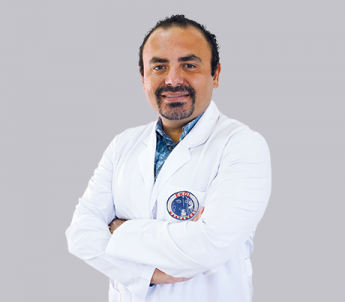 He graduated from Dokuz September University Faculty of Medicine in 2005. September 2005-2010, he completed his specialty education in the Department of Ophthalmology of the Faculty of Medicine of Dokuz Eylül University and earned the title of ophthalmologist. Dec. He has published a large number of scientific articles that have entered international scientific indexes. There are many oral and poster presentations to national and international scientific meetings. He is an active member of the Turkish Ophthalmology Association (TOD), the American Academy of Ophthalmology Association and the European Society of Cataract and Refractive Surgeons. He won the European Ophthalmology Qualification Exam (European Board of Ophthalmology) and became a FEBO. Opr, who is married and has 1 child. Dr. Hüseyin Aslankara speaks English well. Special interests: Retinal Diseases and Vitreoretinal Surgery Cataract Surgery (multifocal, trifocal, toric intraocular lenses) Cataract Surgery with Laser (Femtosecond Laser Cataract) Excimer Laser Surgeries (Lasik, Lasek, PRK) Strabismus Treatment and Surgery Children's Eye Diseases Eye Pressure (Glaucoma) Treatment and Operations Retinopathy of Prematurity and Its Treatment Eyelid Surgeries
He graduated from Dokuz September University Faculty of Medicine in 2005. September 2005-2010, he completed his specialty education in the Department of Ophthalmology of the Faculty of Medicine of Dokuz Eylül University and earned the title of ophthalmologist. Dec. He has published a large number of scientific articles that have entered international scientific indexes. There are many oral and poster presentations to national and international scientific meetings. He is an active member of the Turkish Ophthalmology Association (TOD), the American Academy of Ophthalmology Association and the European Society of Cataract and Refractive Surgeons. He won the European Ophthalmology Qualification Exam (European Board of Ophthalmology) and became a FEBO. Opr, who is married and has 1 child. Dr. Hüseyin Aslankara speaks English well. Special interests: Retinal Diseases and Vitreoretinal Surgery Cataract Surgery (multifocal, trifocal, toric intraocular lenses) Cataract Surgery with Laser (Femtosecond Laser Cataract) Excimer Laser Surgeries (Lasik, Lasek, PRK) Strabismus Treatment and Surgery Children's Eye Diseases Eye Pressure (Glaucoma) Treatment and Operations Retinopathy of Prematurity and Its Treatment Eyelid Surgeries 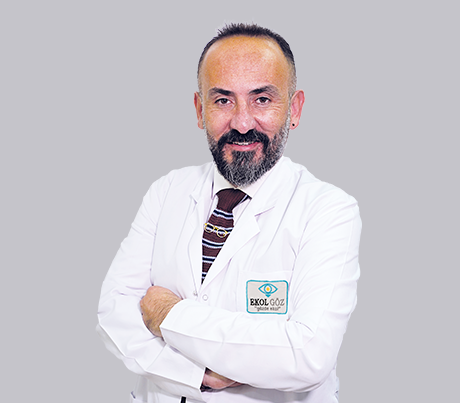 He was born in Nevşehir in 1977. He graduated from Ege University Faculty of Medicine in 2000. He completed his specialization education at Celal Bayar University Faculty of Medicine, Department of Ophthalmology between 2000-2004 and earned the title of ophthalmologist. He is the owner of the Turkish Ophthalmology Board Certificate, which was first given in 2003. A large number of scientific articles that entered international scientific indexes have been published. There are many oral and poster presentations to national and international scientific meetings. He is an active member of the Turkish Ophthalmology Association (TOD). Between 2007 and 2008, Ophthalmology Manual for General Practitioners, Brucellosis in the Etiology of Uveitis and A.O.O.O. There are book translations in Wound Healing Chapters. Op. Dr. Mustafa Alper Çerçi is fluent in English. Special interests: Cataract Surgery (multifocal, trifocal, toric intraocular lenses) Cataract Surgery with Laser (Femtosecond Laser Cataract) Excimer Laser Surgery (Lasik, Lasek, PRK) Medical Retina Eyelid Surgery Strabismus Glaucoma
He was born in Nevşehir in 1977. He graduated from Ege University Faculty of Medicine in 2000. He completed his specialization education at Celal Bayar University Faculty of Medicine, Department of Ophthalmology between 2000-2004 and earned the title of ophthalmologist. He is the owner of the Turkish Ophthalmology Board Certificate, which was first given in 2003. A large number of scientific articles that entered international scientific indexes have been published. There are many oral and poster presentations to national and international scientific meetings. He is an active member of the Turkish Ophthalmology Association (TOD). Between 2007 and 2008, Ophthalmology Manual for General Practitioners, Brucellosis in the Etiology of Uveitis and A.O.O.O. There are book translations in Wound Healing Chapters. Op. Dr. Mustafa Alper Çerçi is fluent in English. Special interests: Cataract Surgery (multifocal, trifocal, toric intraocular lenses) Cataract Surgery with Laser (Femtosecond Laser Cataract) Excimer Laser Surgery (Lasik, Lasek, PRK) Medical Retina Eyelid Surgery Strabismus Glaucoma 










